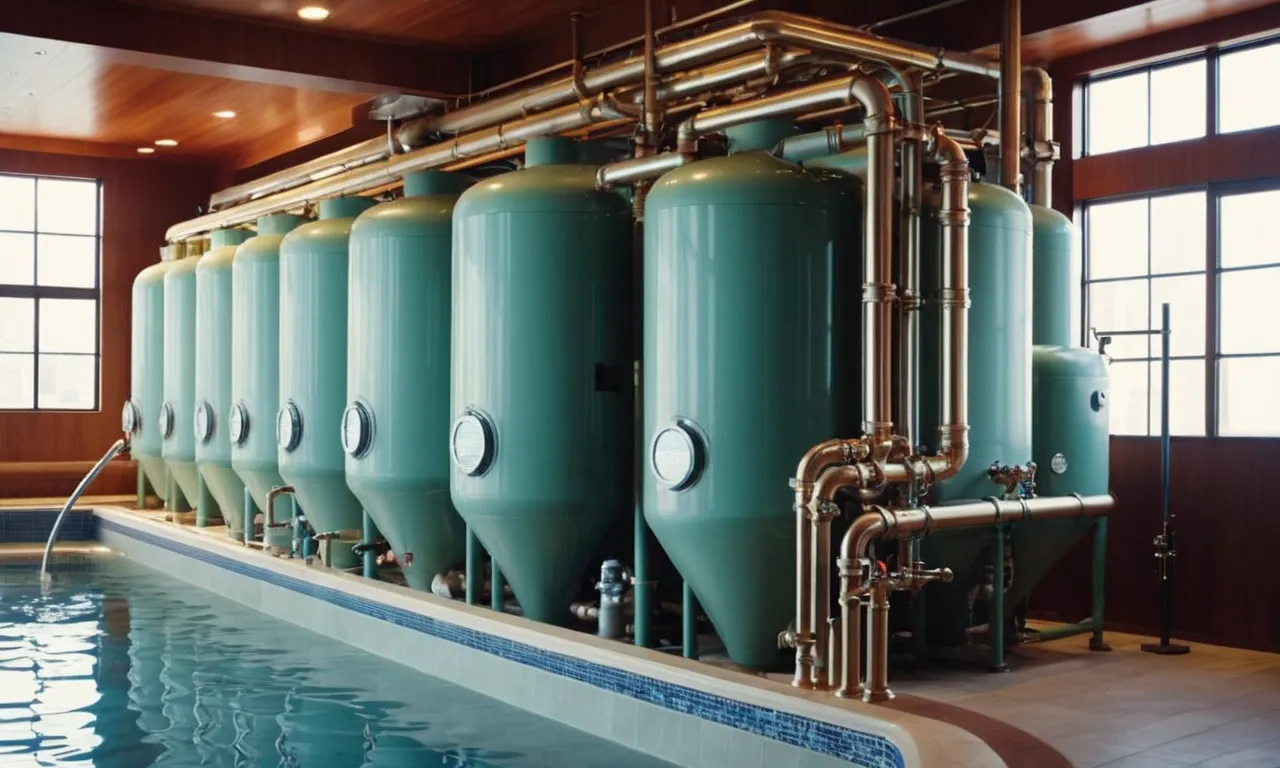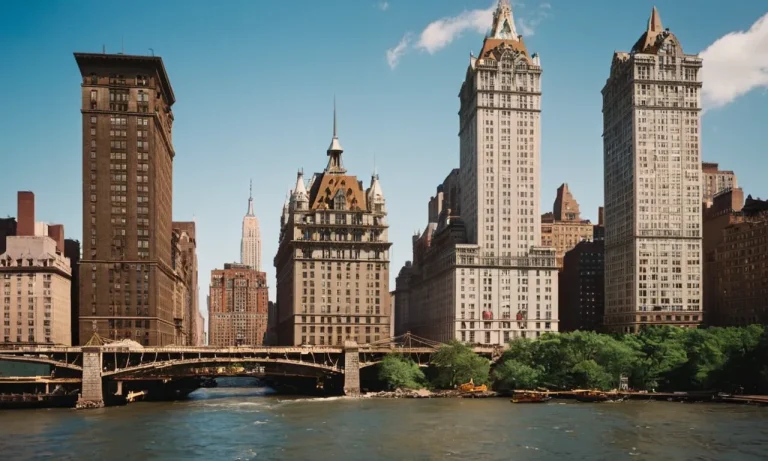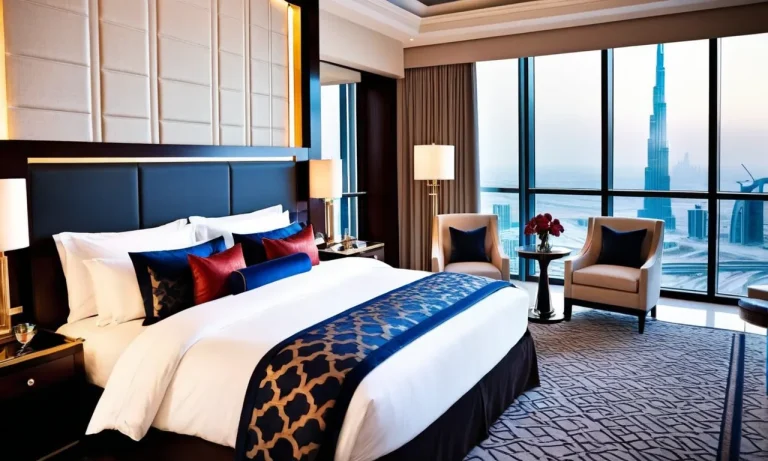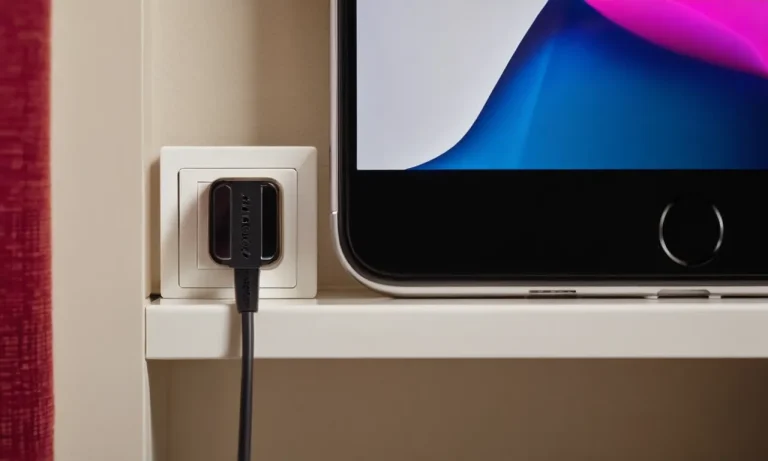How Do Hotels Get Their Water: A Comprehensive Guide
Have you ever wondered where the water you use in hotels comes from? It’s a question that often goes unasked, but the answer is fascinating and essential for understanding the inner workings of the hospitality industry.
If you’re short on time, here’s a quick answer to your question: Hotels typically obtain their water from municipal water systems, private wells, or a combination of both. The water is then treated, stored, and distributed throughout the hotel premises for various purposes, such as guest rooms, restaurants, swimming pools, and laundry facilities.
In this comprehensive article, we’ll delve into the intricate details of how hotels source, treat, and manage their water supply. From the different types of water sources to the treatment processes and distribution systems, we’ll cover every aspect to provide you with a thorough understanding of this vital resource.
Water Sources for Hotels
Hotels require a steady supply of water to meet the needs of their guests and operations. From filling swimming pools to providing water for showers, laundry, and cooking, hotels consume a significant amount of water daily.
The primary sources of water for hotels can be categorized into three main categories: municipal water systems, private wells, and a combination of both.
Municipal Water Systems
Most hotels, especially those located in urban areas, rely on municipal water systems as their primary source of water. These systems are managed by local governments or utility companies and involve a vast network of pipes, treatment facilities, and distribution infrastructure. According to the U.S.
Environmental Protection Agency (EPA), approximately 86% of the population in the United States is served by municipal water systems.
Municipal water systems draw water from various sources, such as rivers, lakes, reservoirs, or groundwater aquifers. The water undergoes treatment processes to remove contaminants and ensure it meets safety standards before being distributed to residential, commercial, and industrial consumers, including hotels.
Hotels connected to municipal water systems typically pay water bills based on their consumption, which can be substantial due to the high water demand of their operations.
Private Wells
In some cases, particularly in rural or remote areas where municipal water systems are not available or accessible, hotels may rely on private wells as their primary water source. Private wells tap into underground aquifers or groundwater reserves, providing a self-sufficient water supply for the hotel.
Hotels with private wells are responsible for ensuring the water quality meets safety standards and may need to install water treatment systems, such as filtration or disinfection systems. Regular water testing and maintenance are crucial to ensure the water remains safe for consumption and use.
According to the National Ground Water Association, approximately 15% of Americans rely on private wells for their water supply.
Combination of Sources
Some hotels, especially larger resorts or properties with extensive water needs, may utilize a combination of municipal water systems and private wells to meet their water demands. This approach provides redundancy and ensures a reliable water supply even during periods of high demand or potential disruptions to one of the sources.
In such cases, hotels may primarily rely on municipal water systems for their daily operations but supplement with water from private wells for specific purposes, such as filling swimming pools or irrigating landscaped areas.
Conversely, some hotels may use private wells as their primary source and supplement with municipal water when necessary. The combination of sources allows hotels to optimize their water management strategies and ensure a consistent supply of water for their guests and operations.
Regardless of the water source, hotels are increasingly focusing on implementing water conservation measures, such as installing low-flow fixtures, using efficient laundry equipment, and promoting water-saving practices among guests and staff.
By reducing their water consumption, hotels can not only save money on utility bills but also contribute to environmental sustainability and the preservation of precious water resources.
Water Treatment Processes
Hotels rely on a series of water treatment processes to ensure a steady supply of clean, safe water for their guests and operations. These processes are crucial for maintaining high standards of hygiene and providing a comfortable and enjoyable experience.
Let’s dive into the key water treatment methods employed by hotels:
Filtration
Filtration is the first line of defense against impurities in water. Hotels often use multi-stage filtration systems to remove sediments, suspended particles, and other contaminants. Common filtration methods include sediment filters, activated carbon filters, and multimedia filters. According to a study by the Environmental Protection Agency (EPA), proper filtration can remove up to 99.9% of particles from water, ensuring a crystal-clear supply.
Disinfection
Disinfection is crucial for eliminating harmful microorganisms, such as bacteria, viruses, and protozoans, that can cause waterborne illnesses. Hotels typically use chemical disinfectants like chlorine, chloramine, or ozone to treat their water supply.
Ultraviolet (UV) light disinfection is also gaining popularity as an environmentally friendly alternative. The Centers for Disease Control and Prevention (CDC) recommends maintaining a residual disinfectant level in water distribution systems to prevent microbial regrowth.
Softening
Hard water, which contains high levels of dissolved minerals like calcium and magnesium, can cause scale buildup in pipes, appliances, and fixtures. Hotels often employ water softening processes to reduce hardness and prevent these issues.
Ion exchange systems, which replace hard minerals with softer ones like sodium or potassium, are commonly used for water softening. According to a study by the American Water Works Association (AWWA), softening can extend the lifespan of water-using equipment and reduce maintenance costs.
Reverse Osmosis
Reverse osmosis (RO) is a highly effective water purification method that removes dissolved solids, contaminants, and even microscopic particles from water. Hotels often use RO systems to produce high-quality drinking water and water for sensitive applications like ice machines and steam irons.
RO systems can remove up to 99% of contaminants, including lead, arsenic, and nitrates. The World Health Organization (WHO) recommends RO as a reliable method for producing safe drinking water.
By implementing these water treatment processes, hotels can ensure a consistent supply of clean, safe water for their guests and operations. Proper water treatment not only enhances the overall guest experience but also promotes sustainability and environmental responsibility. 😊
Water Storage and Distribution
Hotels require a reliable and efficient water storage and distribution system to meet the demands of guests and operations. This system plays a crucial role in ensuring a seamless supply of water throughout the facility. Let’s explore the key components that make this possible:
Water Storage Tanks
Large water storage tanks are a vital part of a hotel’s water infrastructure. These tanks serve as a reserve, holding a substantial volume of water to cater to the hotel’s needs. The size of the tanks varies depending on the hotel’s capacity and water consumption patterns.
According to a study by the U.S. Environmental Protection Agency, the average hotel guest consumes around 150 gallons of water per night. With thousands of guests at larger hotels, these tanks can hold millions of gallons of water.
Piping Systems
An intricate network of pipes distributes water throughout the hotel premises. These pipes are typically made of durable materials like copper, PVC, or cross-linked polyethylene (PEX) to withstand water pressure and prevent leaks.
The piping system is designed to efficiently transport water from the storage tanks to various outlets, such as guest rooms, kitchens, laundry facilities, and swimming pools. Regular maintenance and inspections are crucial to ensure the piping system remains in optimal condition and free from any potential issues like corrosion or blockages.
Pressure Regulation
Consistent water pressure is essential for a comfortable guest experience. Hotels employ pressure regulators and booster pumps to maintain optimal water pressure throughout the building. These devices help ensure that water flows smoothly from taps, showers, and other fixtures, preventing low-pressure issues or excessive water wastage due to high pressure.
According to PlumbingSupply.com, the recommended water pressure range for residential and commercial buildings is between 40 and 80 PSI.
Backflow Prevention
Backflow prevention devices are crucial components of a hotel’s water distribution system. These devices prevent contaminated water from flowing back into the clean water supply, which could pose serious health risks.
Hotels often have multiple backflow prevention devices installed at strategic points, such as near boilers, cooling towers, and irrigation systems. Regular testing and certification of these devices by licensed professionals are typically required by local plumbing codes to ensure they are functioning correctly and protecting the water supply.
By implementing a robust water storage and distribution system, hotels can ensure a reliable and safe water supply for their guests and operations. This system not only contributes to guest satisfaction but also helps hotels manage their water consumption efficiently and comply with relevant regulations and standards.
With proper maintenance and upgrades, hotels can continue to provide a comfortable and hygienic water experience for years to come.
Water Conservation Efforts
Hotels around the world are increasingly implementing various water conservation strategies to reduce their environmental footprint and save on utility costs. By adopting these practices, they not only contribute to sustainability efforts but also demonstrate their commitment to responsible resource management.
Let’s explore some of the key water conservation efforts undertaken by hotels.
Low-flow Fixtures
One of the most effective ways hotels conserve water is by installing low-flow fixtures such as showerheads, faucets, and toilets. These fixtures are designed to deliver the same performance while using significantly less water.
According to the EPA’s WaterSense program, low-flow showerheads can save up to 2,900 gallons of water per year for a family of four. Many hotels have embraced this technology, resulting in substantial water savings without compromising guest comfort.
Greywater Recycling
Greywater recycling is another innovative approach adopted by some hotels. This process involves collecting and treating water from sinks, showers, and laundry facilities for non-potable purposes like irrigation and toilet flushing.
By reusing greywater, hotels can significantly reduce their freshwater consumption. For instance, the Fairmont Hotels & Resorts has implemented greywater recycling systems in several of its properties, saving millions of gallons of water annually.
Rainwater Harvesting
In areas with adequate rainfall, hotels are turning to rainwater harvesting systems to supplement their water supply. These systems collect and store rainwater from rooftops and other surfaces, which can then be used for various purposes like landscaping, cooling towers, and even some domestic uses.
Not only does rainwater harvesting reduce the strain on municipal water sources, but it also helps mitigate urban flooding by reducing stormwater runoff. The InterContinental Hotels Group has implemented rainwater harvesting systems in several of its properties, saving an estimated 😍 50 million gallons of water annually.
Guest Education and Awareness
While implementing water-saving technologies is crucial, hotels also recognize the importance of guest education and awareness. Many hotels have launched campaigns to encourage guests to adopt water-conserving practices during their stay, such as reusing towels, taking shorter showers, and reporting any leaks or dripping faucets.
These initiatives not only help save water but also promote a culture of environmental consciousness among guests. For example, the Marriott International has implemented a “towel and linen reuse” program, which has saved an impressive 👏 6.6 billion gallons of water annually.
By embracing these water conservation efforts, hotels are demonstrating their commitment to sustainability and setting an example for other industries to follow. As the demand for eco-friendly practices continues to grow, it is expected that more hotels will adopt innovative water-saving strategies to meet the expectations of environmentally conscious guests while contributing to a more sustainable future.
Conclusion
Providing a reliable and safe water supply is a critical aspect of hotel operations. From sourcing water from municipal systems or private wells to implementing advanced treatment processes and efficient distribution networks, hotels go through extensive measures to ensure their guests have access to clean water for various purposes.
As the hospitality industry continues to evolve, water conservation efforts have become increasingly important. By implementing strategies such as low-flow fixtures, greywater recycling, rainwater harvesting, and guest education programs, hotels are taking proactive steps to reduce their water footprint and promote sustainability.
Understanding the intricate details of how hotels get their water not only satisfies our curiosity but also highlights the complex systems and processes involved in delivering this essential resource to guests.
By appreciating the behind-the-scenes efforts, we can develop a greater appreciation for the hospitality industry’s commitment to providing a comfortable and sustainable experience.








